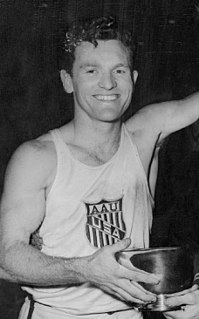A Quote by R. C. Sproul
He is intangible and invisible. But His work is more powerful than the most ferocious wind. The Spirit brings order out of chaos and beauty out of ugliness. He can transform a sin-blistered man into a paragon of virtue. The Spirit changes people. The Author of life is also the Transformer of life.
Related Quotes
Life is more than matter. If it were just matter, there would be no need for comfort. Matter does not feel comfort or discomfort, beauty or ugliness, love or compassion, joy or sorrow. Will a chair ever feel sorry or happy? No, matter does not have these finer values. They belong to the realm of the spirit. But life is also more than spirit. If it were just spirit, there would be no need for water, food, or rest. Human life is a combination of both matter and spirit.
Generally there is in man a divinity which strives to push him onward and upward. We believe that this power within him is the spirit that comes from God. Man lived before he came to this earth, and he is here now to strive to perfect the spirit within. At sometime in his life, every man is conscious of a desire to come in touch with the Infinite. His spirit reaches out for God. This sense of feeling is universal, and all men ought to be, in deepest truth, engaged in the same great work—the search for and the development of spiritual peace and freedom.
It may sound strange, but many champions are made champions by setback. They are champions because they've been hurt. Their experience moved them, and they pulled out this fighting spirit, making them what they are. Sometimes in life, God gives us a difficulty in order to bring out the fighting spirit. Everything that happens to you can happen for good if you have this spirit. The essential thing in life is not in the conquering, but in the fight.
The faithful man perceives nothing less than opportunity in difficulties. Flowing through his spine, faith and courage work together: Such a man does not fear losing his life, thus he will risk losing it at times in order to empower it. By this he actually values his life more than the man who fears losing his life. It is much like leaping from a window in order to avoid a fire yet in that most crucial moment knowing that God will appear to catch you.
We've fallen for the devil's lie. His most basic strategy, the same one he employed with Adam and Eve, is to make us believe that sin brings fulfillment. However, in reality, sin robs us of fulfillment. Sin doesn't make life interesting; it makes life empty. Sin doesn't create adventure; it blunts it. Sin doesn't expand life; it shrinks it. Sin's emptiness inevitably leads to boredom. When there's fulfillment, when there's beauty, when we see God as he truly is-an endless reservoir of fascination-boredom becomes impossible.
One more royal trait properly belongs to the poet. I mean his cheerfulness, without which no man can be a poet,--for beauty is his aim. He loves virtue, not for its obligation, but for its grace; he delights in the world, in man, in woman, for the lovely light that sparkles from them. Beauty, the spirit of joy and hilarity, he sheds over the universe.
Furthermore, it is not that Spirit is present but you need to be enlightened in order to see it. It is not that you are one with Spirit but just don't know it yet. Because that would also imply that there is some place Spirit is not. No, according to Dzogchen, you are always already one with Spirit, and that awareness is always already fully present, right now. You are looking directly at Spirit, with Spirit, in every act of awareness. There is nowhere Spirit is not.




































